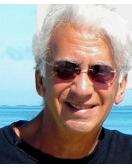The other day I went Googling to see if I might have missed a published review of one of my books. I typed in one book and another came up, well down the list and from two years ago. That was before I began publishing, and before any of my books were available, with one exception. There were still old copies of Murder in the Synagogue for sale on Amazon and at several used book sites.
So I checked out the listing, a site called “R. Shlomo’s reading list,” which turned out to be a blog by a Chicago rabbi, and found his review of Murder posted on November 2, 2011. As I learned later from an exchange of emails with Rabbi Rav Shlomo, that was some 40 years after he had read my original article on the murder of Rabbi Morris Adler reprinted from Commentary in The Norton Reader. He had found the book on the internet, recalled the tragic story, bought Murder and reviewed it. Yes, life can be a little weird.
So here is the rabbi’s review:
Murder in the Synagogue is a multilevel, fascinating study of the 1966 notorious murder of prominent suburban Detroit rabbi Morris Adler. The book profiles Richard Wishnetsky, a promising graduate student who gradually descends into a psychosis that culminates in Rabbi Adler’s murder and Wishnetsky’s suicide during a Saturday morning Bar Mitzvah service.
Richard Wishnetsky drew inspiration from his Hasidic grandfather claiming a certain authenticity that the suburban synagogue community and its rabbi lacked. We are told of his idealism of wanting to make a difference. He wants to make his mark, to make a statement. Unfortunately, his life spins out of control when it appears that his graduate study plans will not come to the fruition that he expects. We find that he fails at love; he is frustrated with rejection. Speculations of homosexuality persist about his social interactions. He is unattractive. His tragic confusion results in such an horrific scene: reading a final statement against the community and turning to shoot the rabbi and than himself before a crowd of 800 congregants and Bar Mitzvah celebrants.
What struck me about the book was the criticism of Suburban Jewish life; its materialism and lack of religiosity. However, how can one take seriously the criticism of the deranged? Had Wishnetsky experienced success and not failure would he have even noticed the flaws in his own community? Would his mind have crumbled so severely with the taste of triumph? He may have identified with his religious grandfather, however, he, himself, never became religious. The phoniness that he charged and applied to the community could have been charged and applied to himself.
Although a heart wrenching read, the book is thought provoking, written in a strong narrative prose.
In the comments section on the rabbi’s blog I left a message thanking him for the review and mentioning that he might be interested in my book Squelched, an account of what happened to Murder and its strange publishing history. After our email exchange, within a few days he was reading Squelched and a day later he posted this review:
This slim volume is really a continuation of and an explanation of the fate of the excellent study Murder in the Synagogue also by T. V. LoCicero. Anyone who has read Murder in the Synagogue would have expected a wide audience and best seller status because of its topic, caliber of writing and reporting. Surprisingly, the book was stalled and then halted after the author received promising reviews and expectations from the publisher. He subsequently heard from a congregant of that fateful synagogue that a prominent member of the synagogue community proudly announced to a group of friends the he “squelched” the book. Mr. LoCicero details the mishaps and misstatements of his publisher fudging its way through an unsatisfying explanation of the book’s failure.
The book’s picture of people of influence and power rings true; it reminds me of my life as a community rabbi when my job was threatened for speaking the truth. “Rabbi, if you continue to explain your view, there are people in this town who can ruin you! I would watch out if I were you!!” Or alternatively, it reminds me of the help I received: “Rabbi, there seems to be some misplaced anger directed toward you- we’ll just send a letter …” and the anger dissipated and disappeared miraculously! In the first case as a fiery young rabbi I responded with “How dare you threaten a rabbi! I will serve the entire community and not just a few of the elite!” And in the second case, I marveled at the power this man’s pen!
Every community has its ‘melech’, king. The role of the king is to fight and defend and unfortunately for Mr. LoCicero the king misunderstood his very well thought out book that analyzed a dangerous crank as a threat to the community and supposedly snuffed out the “threat” as a king is expected to do.
If the book is true, and there is little evidence to deny this fine written memoir, I believe here the king and his council were wrong! The rabbi’s widow even praised the book. The synagogue could have grown in many ways as a result of a best seller depending on the leadership of the synagogue.
Since Mr. LoCicero has brought Murder in the Synagogue back into print, I believe it to be a very worthwhile read and recommend his writing.
Of course, I am deeply grateful to Rabbi Shlomo for his kind and perceptive reviews. And once again I’m amazed at what is possible in this brave new world of publishing.

